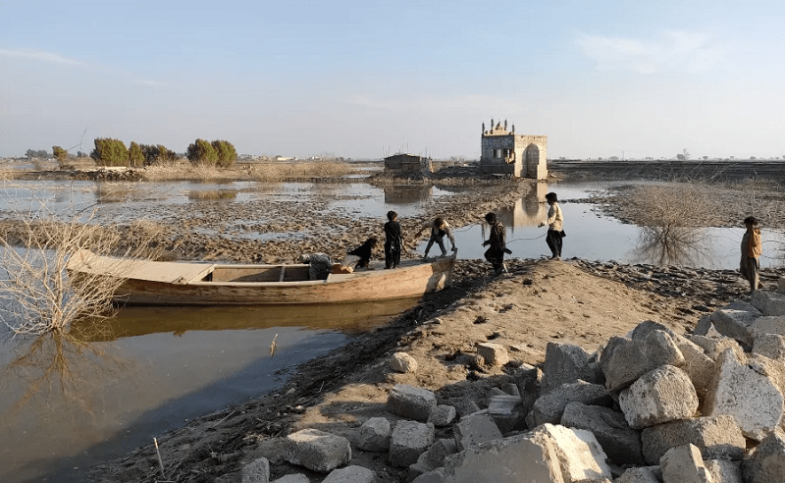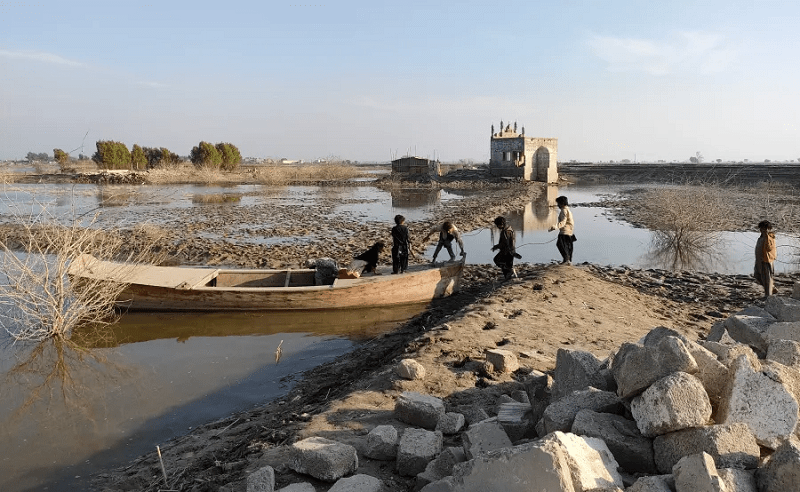The collaboration will be implemented through GLLSP-II, a project financed by the International Fund for Agricultural Development (IFAD).

The Food and Agriculture Organization (FAO) of the United Nations and the Balochistan government have teamed up to mobilize policy support for promoting climate-smart practices in agriculture and fisheries in the province.
To establish a Unilateral Trust Fund (UTF), Florence Rolle, the FAO representative in Pakistan, and Rehmat Dashti, the director of the Gwadar-Lasbela Livelihood Support Project (GLLSP-II), collaborated on Wednesday.
The collaboration will be implemented through GLLSP-II, a project financed by the International Fund for Agricultural Development (IFAD).
A six-year project called Gwadar-Lasbela Livelihoods Support (GLLSP-II) aims to improve the incomes and standard of living for rural poor fishermen and agricultural households and also promote climate-smart practices. With a focus on women and young people, the project will benefit about 100,000 households and cover 400 villages in two districts.
It will pay for community infrastructure, roads, jetties, and landing sites, as well as socioeconomic infrastructure for farming and fishing communities. All project interventions follow the IFAD 11 corporate priorities and the IFAD Strategic Framework.
The project consists of three complementary components.
A – Community development works to raise the incomes and standard of living of rural communities by involving the target households in social mobilisation, poverty eradication, and the development of social and economic infrastructure.
These elements consist of 40 km of farm-to-market roads, 400 CPIs per village, and 45 Union council development plans (UCDPs). To further improve household nutrition and climate smart agriculture, the component works in conjunction with the Planning Commission, World Food Programme (WFP), Nutrition Section/SUN Movement Secretariat, and WFP.
B – By establishing a 4Ps business framework at 30 landing sites, the Fisheries Value Chain Development seeks to increase the incomes of small fishing communities.
Professionally managed homes, cooperatives, factories in the private sector, middlemen, banks, and the Department of Fisheries will all be involved in this. Enhancing fish catch quality, lowering waste, increasing marketing opportunities, and managing fish resources sustainably are the objectives.
For financial inclusion, the banking industry will be involved. 80 km of access roads to fish markets and the construction of 3 jetties and related infrastructure at priority locations will support the infrastructure. The Fisheries Department’s institutional strengthening and capacity building will be assisted by the third sub-component.
C – Project Management and Policy Support will fund the establishment of a Project Management Unit in Quetta, along with two project implementation units (one in each of Gwadar and Lasbela), and will also offer technical assistance to the provincial government in five project-relevant areas, including youth development, nutrition and food security, climate change action planning, fisheries policy and law on fisheries cooperatives, updating and institutionalization of the CDD approach under.
GLLSP II objective and interventions are aligned with at least seven SDGs including Poverty (SDG 1), Zero Hunger (SDG 2), Gender Equality (SDG 5), Clean Water and Sanitation (SDG 6), Affordable and Clean Energy (SDG 7), Reduced Inequalities (SDG 10), Climate Action (SDG 13) and Life Below Water (SDG 14).
